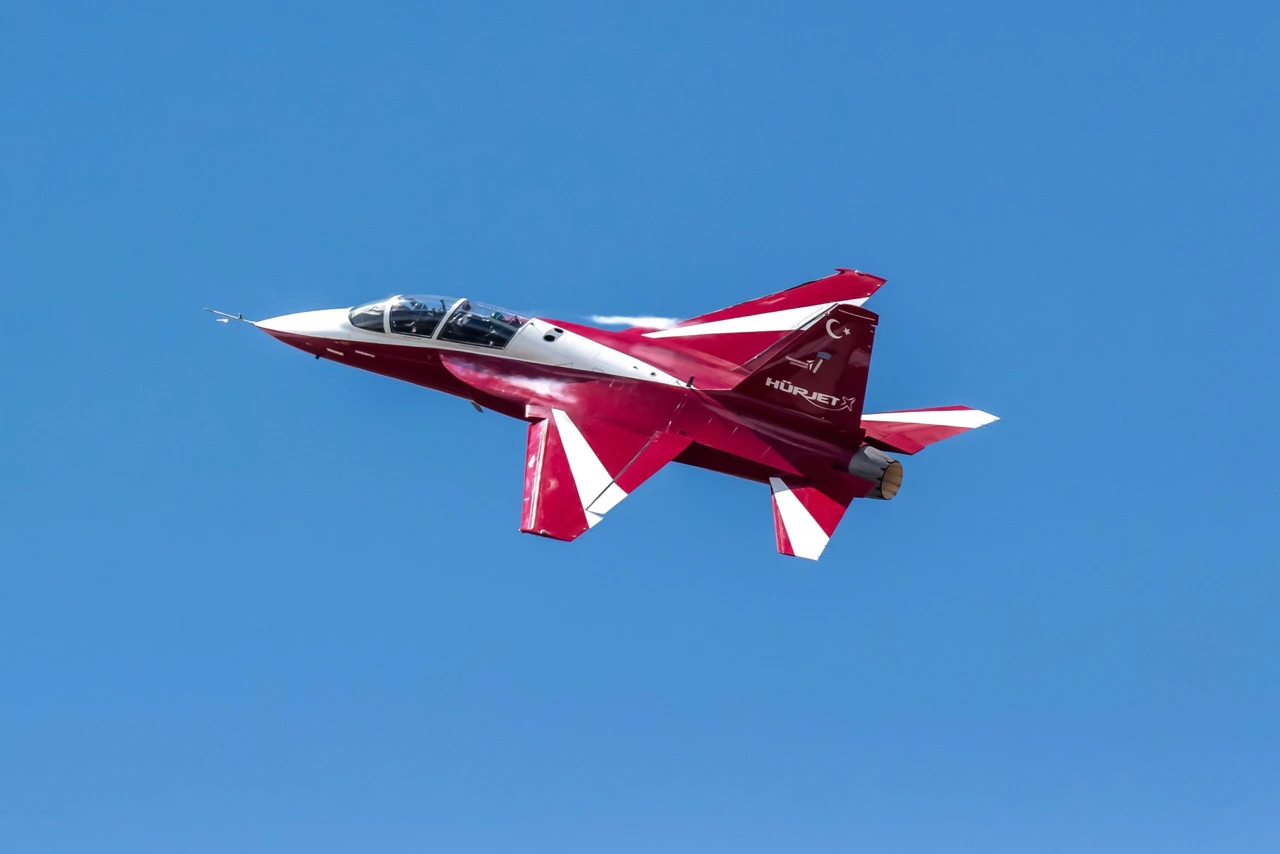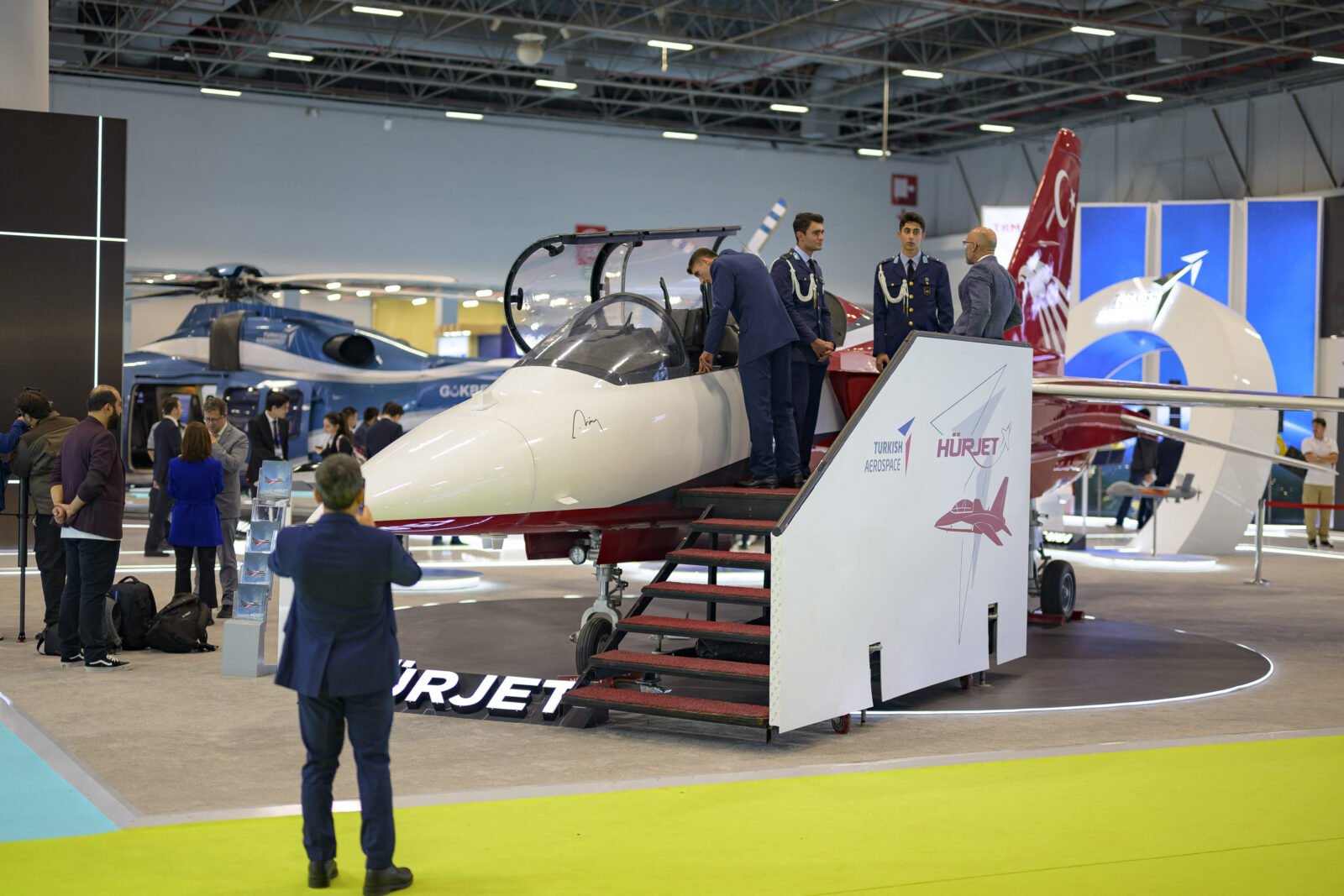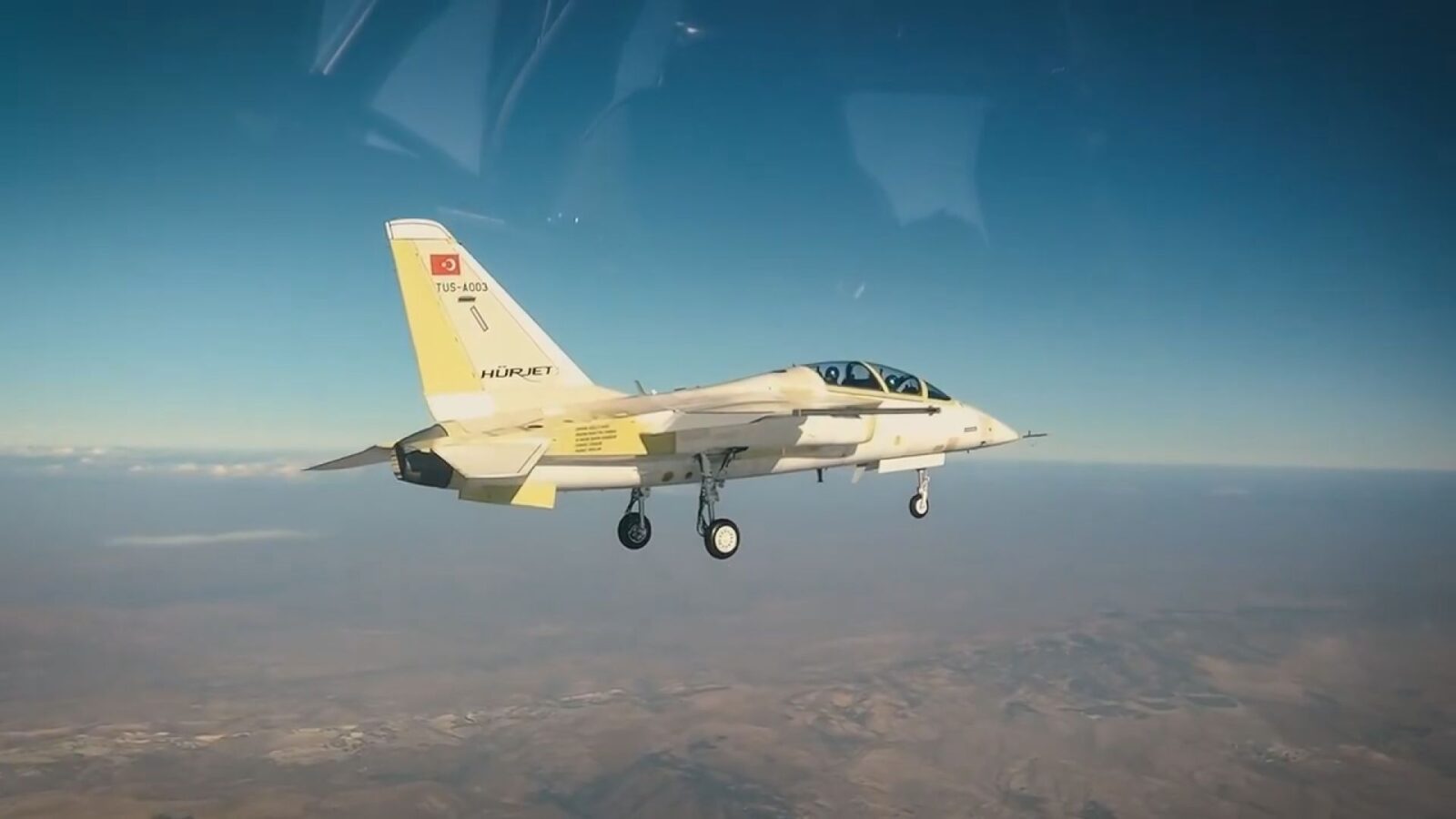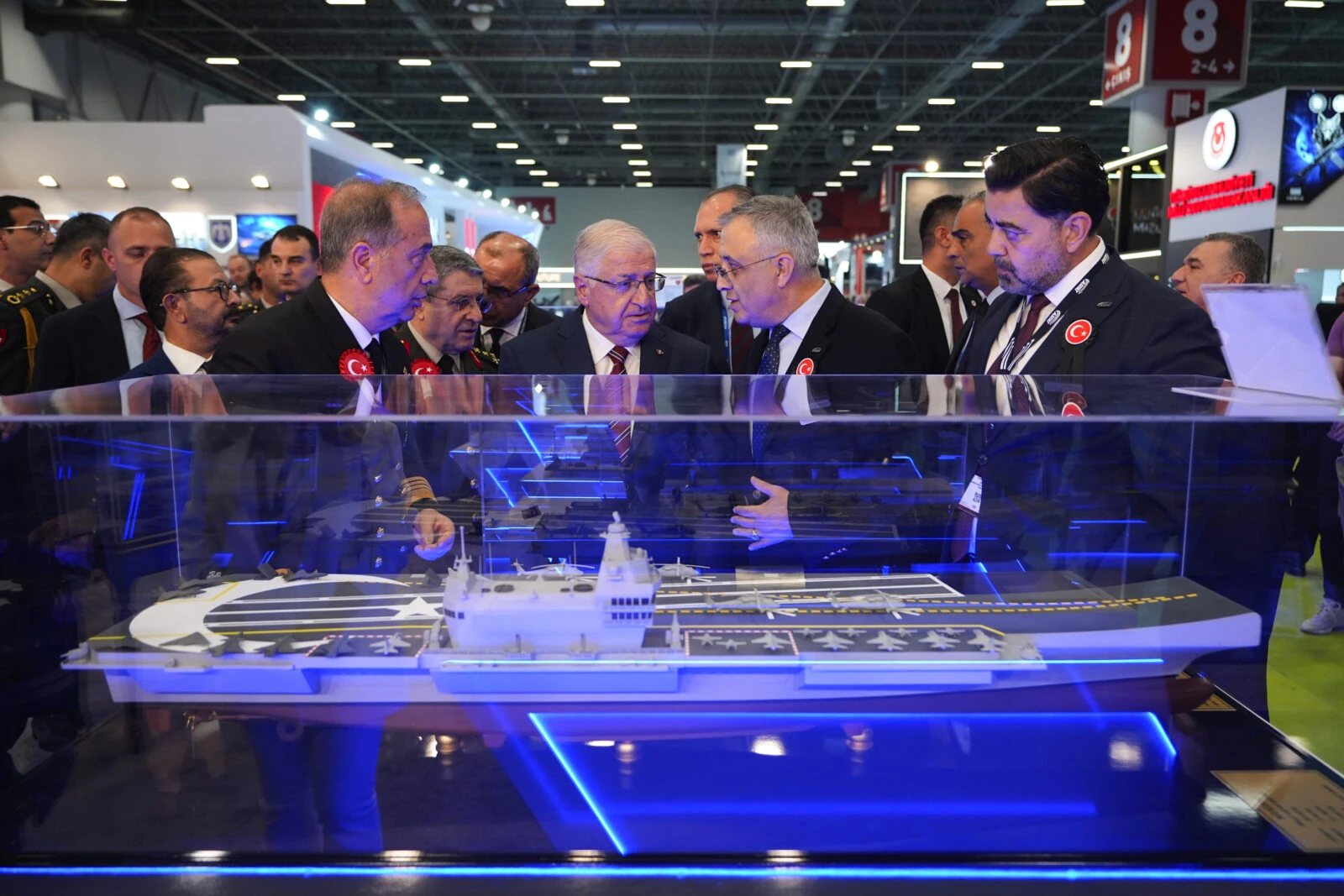Türkiye’s TAI Hurjet reaches supersonic speed of mach 1.2 in flight test
 Hurjet advanced jet trainer, developed by Turkish Aerospace Industries (TAI) during a flight, accessed on April 18, 2025. (Photo via X / @TUSAS_TR)
Hurjet advanced jet trainer, developed by Turkish Aerospace Industries (TAI) during a flight, accessed on April 18, 2025. (Photo via X / @TUSAS_TR)
The Hurjet advanced jet trainer, developed by Turkish Aerospace Industries (TAI), has achieved a major milestone by reaching Mach 1.2—approximately 1,470 kilometers per hour (km/h)—during its test flights, according to an official statement by the manufacturer.
The supersonic flight test marks a significant benchmark in Türkiye’s aviation history and demonstrates the growing capabilities of the country’s domestic aerospace sector.
Outpaces rivals
Hurjet now outpaces several of its closest international rivals:
- Boeing–Saab T-7 Red Hawk: Mach 0.975 (approx. 1,194 km/h)
- Leonardo M-346: Mach 1.15 (approx. 1,408 km/h)
- KAI T-50 Golden Eagle: Comparable performance, maximum speed mach 1.5.
TAI announced the breakthrough on social media, stating, “Hurjet has reached Mach 1.2, surpassing another critical threshold in supersonic jet training. We are pushing our success in the skies even further every day.”

Milestone in Türkiye’s aviation roadmap
Hurjet, Türkiye’s first indigenously developed manned jet-powered aircraft, is part of a broader strategy to enhance national capabilities in defense aviation. Its successful supersonic test represents both a technical and strategic milestone.
Haluk Gorgun, head of the Secretariat of Defense Industries (SSB), emphasized the significance of the achievement on a social media post and said, “Hurjet’s achievement of supersonic speed is not only an engineering achievement; it is also a new milestone in Türkiye’s vision of independent aviation.”
“We are stronger in the sky with local and national solutions in every mission, from training to attack. This success is a strong indicator of the path we have followed with courage, faith and common sense,” he added.

Hurjet’s specifications and production timeline
Hurjet is a single-engine advanced jet trainer and light attack aircraft, part of Türkiye’s effort to replace the aging T-38M and NF-5A/B 2000 aircraft in its air force.
- Initial orders: The Turkish Air Force has ordered four aircraft, with options for 12 more.
- Delivery schedule: Four Hurjets are expected by 2025, with 12 Block 1 variants by 2028.
- Expansion plans: The Turkish Stars aerobatic team will also receive 12 Hurjets.
TAI has secured an agreement with GE Aerospace for 100 F404-GE-102 Turbofan engines to power the Hurjet. The company aims to deliver 100 aircraft to Türkiye and 300 to international customers by the 2030s.

Hurjet development and production
Hurjet, a twin-seat, single-engine supersonic new-generation jet trainer and light attack aircraft, began development on July 2, 2018, under an agreement between TAI, the SSB and the Turkish Air Force.
Initial studies for the “Jet Trainer Aircraft & Light Attack Aircraft Project” commenced in July 2017, with the project officially starting on Aug. 14, 2017.
The goal of the Hurjet project is to develop a supersonic domestic jet trainer to replace the T-38M and NF-5A/B 2000 aircraft in the Turkish Air Force inventory by the 2030s.
Additionally, Hurjet aims to alleviate the load on the F-16C/D aircraft by taking on close air support roles.
TAI also plans to develop a naval version of Hurjet for aircraft carrier operations.

What is supersonic speed?
Supersonic speed refers to velocities exceeding the speed of sound, which is approximately 343.2 m/s (1,235.5 km/h) in air at sea level and 20 degrees Celsius.
A Mach number indicates how many times faster than the speed of sound an object is traveling. Reaching Mach 1.2 means the Hurjet flies at 1.2 times the speed of sound.
Mach values are crucial in aviation to define aircraft performance in different flight regimes—subsonic, transonic, supersonic and hypersonic.



